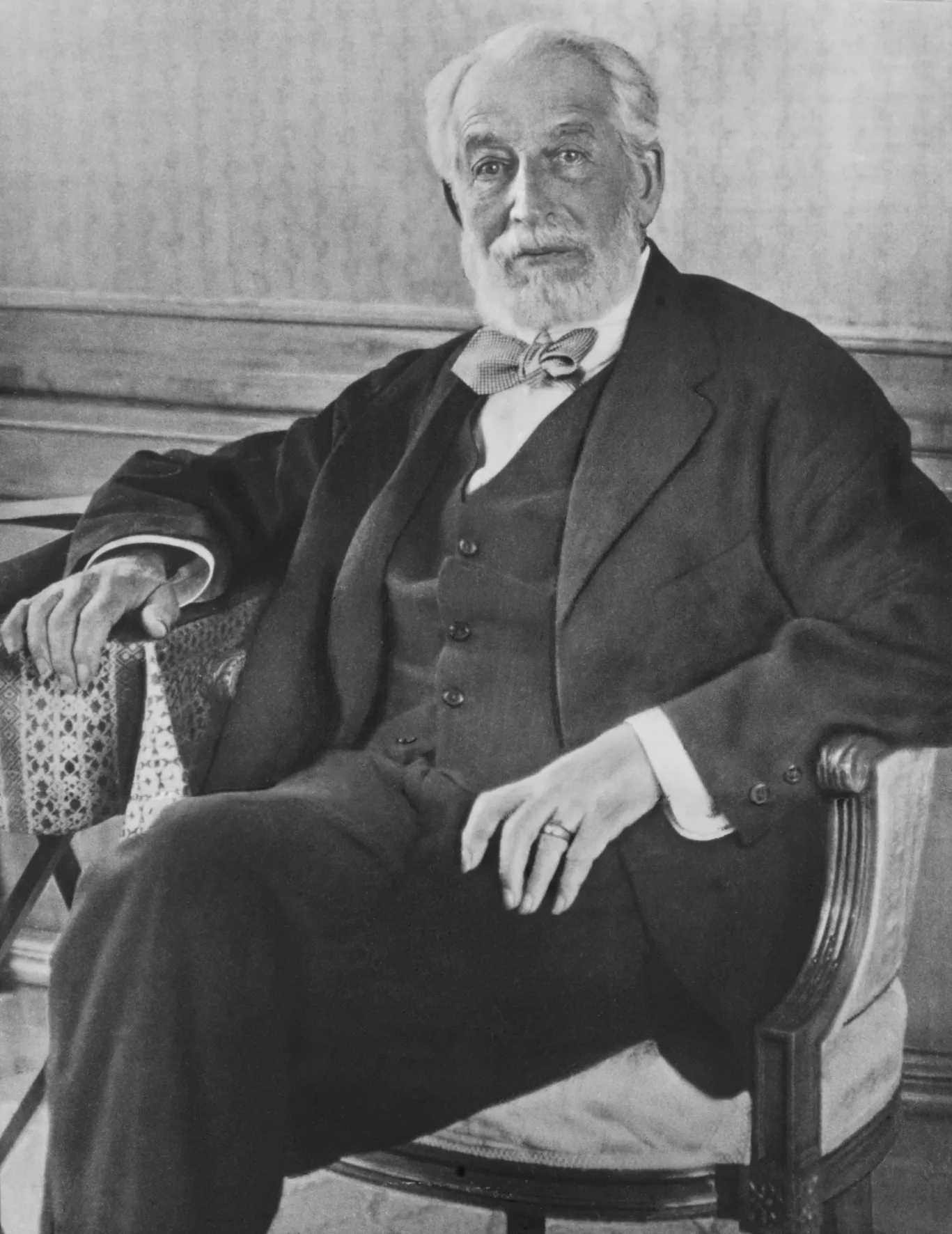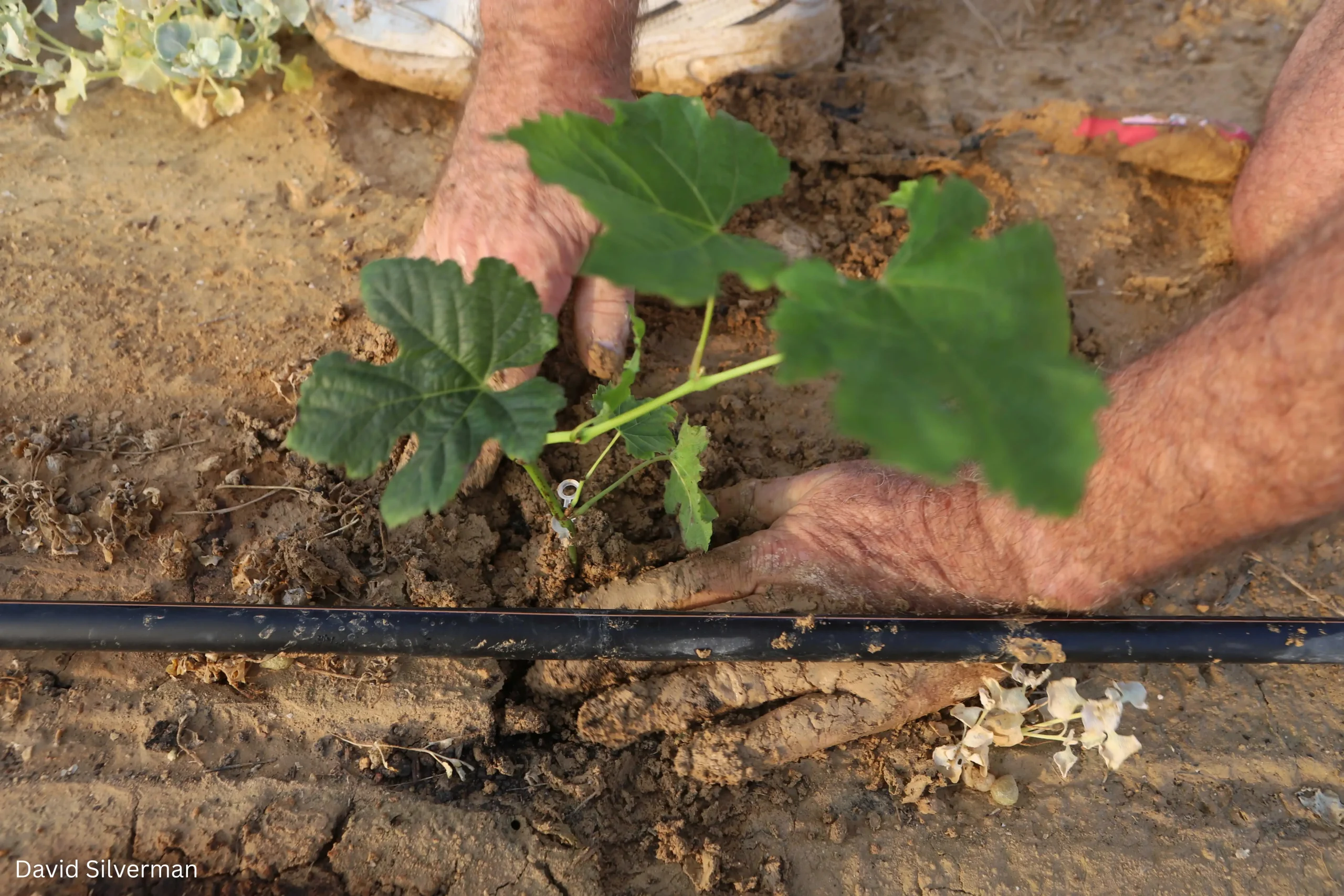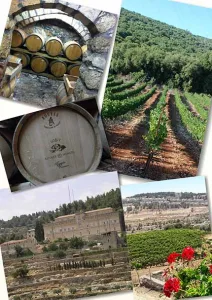Let’s destroy some popular misconceptions: Not all kosher wine is made in Israel and not all Israeli wine is kosher! Nowadays nearly every wine producing country in the world today produces kosher wine. In Israel, just
to be confusing, many of the smaller wineries make non-kosher wine. However it is true to say that the majority of wine made in Israel is kosher.
The kosher wine laws are the oldest wine laws in the world. France may boast about its Appellation Controllée and Cru Classé systems, which have roots that may go back hundreds of years, but the Kosher wine laws are measured in thousands. Some of these laws (orla, kilai hakerem) still make sound agricultural sense. Others (like shmittah, trumot & maserot) are today regarded as more symbolic. In Biblical times though, they were revolutionary, addressing the profoundest issues of spirituality v’s materialism, economic justice and ecological sustainability. One thing is for certain, not one of the kosher wine laws may be held as a reason for making poor wine.
The kosher designation should not be thought as a quality defining process. Think of kosher certification more like a quality assurance program, similar to the ISO systems. All raw materials like yeasts, barrels and fining agents have to be prepared under the strictest quality and hygiene standards. Origin and traceability are key and there is an exaggerated emphasis on cleanliness. However there is nothing which alters the basic way of making wine and traditional methods are followed throughout the process.
A kosher wine today is likely to be dry, possibly made from a classic variety like Cabernet Sauvignon, which is grown in the finest vineyards of Bordeaux, California or the Galilee. The technology will be advanced and the equipment state of the art. The winemaker will be internationally trained, just like his non-kosher winery counterpart. No difference between kosher and non-kosher. It will be harvested, fermented, aged and bottled in the same way. A well-made kosher wine is good and a poorly made kosher wine is bad. It is not good or bad because it is kosher.
Mark Squires, an expert on Israeli wines, got it right. He wrote in the Wine Advocate and Robert Parker’s Wine Guide: “Today the mainstream (Israeli Kosher) wines are more likely to be bottlings of Bordeaux varietals, Chardonnay, or Syrah that have typicity and will seem familiar to sophisticated consumers.” He went on to say: “…no one should avoid wines simply because they have kosher certifications.”
Unfortunately the word ‘kosher’, where wine is concerned, is almost a pejorative term. If it is kosher, there are those who believe it can’t be good. Regrettably, kosher wine is often confused with the Kiddush wine category. These are the sweet, red sacramental wines that have given kosher such a bad name. A quality kosher wine can be equated to other quality wines. It has nothing at all in common with the sweet, sugary liquid religion wine used as Altar or Communion wine by Christians or Kiddush wine by Jews.
Most wineries usually prefer to ignore the ‘k’ word. They want to make the best ‘Israeli and Eastern Mediterranean’ wine they can, which just happens also to be kosher.
Strict observance of kashrut, does not prohibit the possibility of either making great wine or even drinking a fine wine for purposes of religious ritual. One of Judaism’s greatest sages, The Rambam, aka Maimonides, gives some guidance here. He was an early proponent of quality wines and insisted that sweetened or pasteurised wines should not be used either for Kiddush or ‘Arba Kossot’, the four glasses at Passover.
Regrettably it is often the Jewish communities around the world, which are the most cynical with regard to the acceptance of the possibility of quality kosher wine. A lifetime of Palwin in the UK, Manischevitz, Mogen David & Kedem in the USA, King David, Yashan Noshan and Conditon in Israel at Simchas, Shabbats and Seders has had an effect.
Recent events have proved them wrong. Awards, scores and critics reviews have provided international recognition at the very highest level and destroyed forever the pre-conceived ideas about kosher wines.
Castel, Yarden and Yatir have each been awarded 93 points from Robert Parker’s Wine Advocate. Yatir Forest has scored 90 or more points eight years in a row. Castel received four stars from Hugh Johnson’s Pocket Wine Book, the highest rating possible. Yarden Cabernet Sauvignon was in the Wine Spectator’s Annual Top 100 Wines. Carmel’s Kayoumi Shiraz won The Decanter International Trophy, beating the best from France & Australia. The Golan Heights Winery was adjudged the best winery at Vinitaly. Carmel Winery, Domaine du Castel, Yarden-Golan Heights Winery and Yatir Winery are proudly Israeli and their wines happen also to be Kosher.
To put this third party recognition in perspective, Robert Parker is the world’s leading wine critic and Hugh Johnson the world’s leading wine writer. The Wine Spectator is one of the world’s leading wine magazines and the Decanter World Wine Awards, one of the world’s leading competition. Vinitaly is one of the world’s leading wine exhibitions. Each of the wines was being judged on a criteria of quality alone and not on a basis of whether they were kosher or not.
Sparkling wine is made everywhere, but French Champagne is regarded as the best. In the same way, kosher wine has become international. However the finest kosher wines in the world are, in my humble opinion, produced in Israel. Likewise in the same way New Zealand specializes in Sauvignon Blanc and Argentina in Malbec, Israel specializes in kosher wine. The best range, quality and best value kosher wines are today available from Israel.
Lets face it, kosher wines have had a bad reputation because once they were pretty awful. This is no longer true, but many abroad have not caught up with the new reality. The ‘k’ word stigma still exists. Now the world’s leading wine experts have given kosher wines their approval, it is time the wine drinking public did the same.
We should not be ashamed of producing kosher wines or labeling our wines as kosher. We should be kosher and proud of it!
Adam Montefiore works for Carmel Winery and regularly writes about wine for both Israeli and international publications.
[email protected]<span style=”vertical-align: bottom;”> (mailto:%E2%80%8B%[email protected])



















